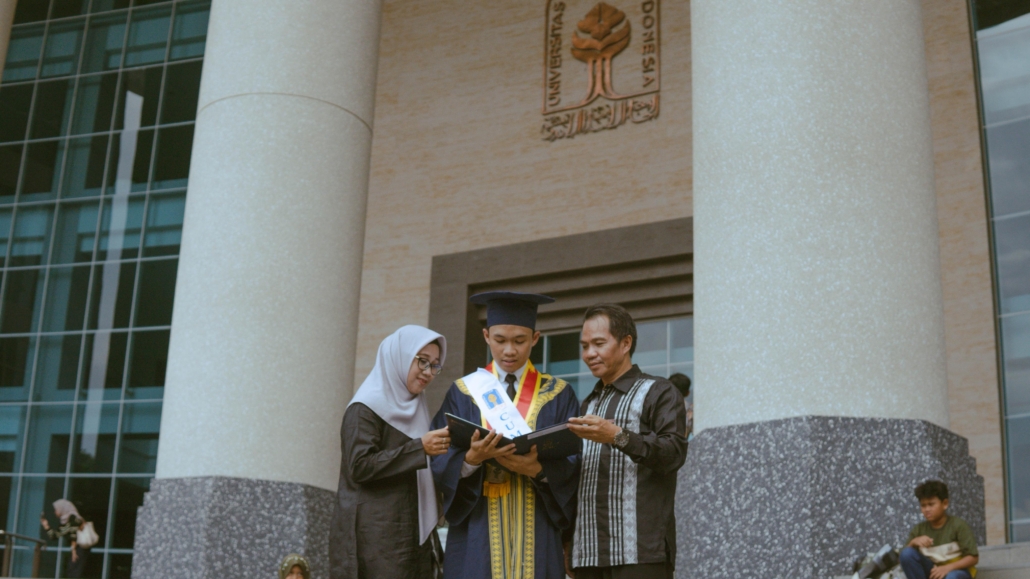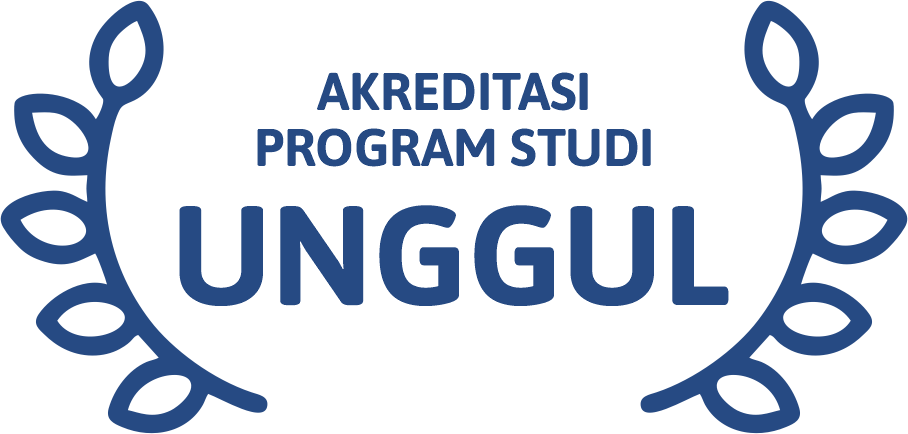Fast and On Point, UII Law Student Graduates in a Short Time Without a Thesis

[KALIURANG]; One of the students from the Faculty of Law at the Islamic University of Indonesia (FH UII), Muhammad Irfan Dhiaulhaq AR—commonly known as Irfan—graduated with a Cumulative Grade Point Average (CGPA) of 3.73 in a relatively short academic period of 3 years and 3 months. He took part in the graduation ceremony on the first day of the UII Graduation Ceremony for the 4th Period of the 2024/2025 Academic Year, held on Saturday (April 26) at the Abdul Kahar Muzakkir Auditorium. Interestingly, Irfan graduated without a thesis, instead converting his final project (TA) into a co-authored journal with his academic supervisor, Dodik Setiawan Nur Heriyanto, S.H., M.H., LL.M., Ph.D.
They co-authored a journal article titled “Striking A Balance Between Job Creation And Sustainability: The Need To Establish A True Environmental Protection Authority in Indonesia” (https://doi.org/10.22437/home.v7i1.317), which was submitted to the Jambe Law Journal, Edition No. 1 of 2024. This journal is accredited as SINTA 2 and served as the conversion for Irfan’s final project. The research raised concerns regarding Law No. 6 of 2023 on Job Creation, which disrupts the balance between economic activity and environmental sustainability by simplifying environmental permits and reducing AMDAL obligations. Using a normative legal approach, the research evaluates how this law diverges from principles of environmental protection. It calls for the establishment of an Environmental Protection Authority to ensure that all business activities in Indonesia comply with sustainability obligations and to prevent uncontrollable environmental degradation.
The process of writing the journal took six months—from September 2024 to March 2025—including preparation, major and minor revisions based on feedback from internal parties and peer reviewers, and the submission process. Irfan admitted that the research process was intense yet exciting due to the novelty of the topic.
“It was certainly intense and exciting, as the research presents a new field that has not been previously explored. Of course, the preparation phase had already begun long in advance, starting from the fifth semester,” Irfan stated during an interview.
Naturally, the process came with challenges—especially in ensuring consistency between the data and the research problem. He noted this was the most difficult part, as the data he used came from Australia.
“Since the data I obtained was specifically related to Australia, I had to regularly check Australian websites or obtain insights from sources there—either through public seminars or by personally emailing the relevant institutions,” he explained.
This journal publication ultimately became Irfan’s path to completing his studies in a notably short time. He also shared tips for students aiming to graduate quickly:
First, reduce non-academic commitments by the sixth semester, improve time management, and focus on the chosen final project topic.
Second, take the Research Methods course seriously and aim to finalize the project proposal by the end of the sixth semester.
Third, find a supervisor whose expertise aligns with your interests, as this significantly impacts the guidance process.
Fourth, choose friends wisely—especially those who are also motivated to graduate on time.
Lastly, strengthen spiritual practices, and seek prayers and support from parents to ensure a smooth academic journey.
He also shared a motivational message for fellow students to stay enthusiastic in their pursuit of success:
“Stay motivated, strive for success, and write to bring benefit to many people,” he concluded. (FMTZ)







